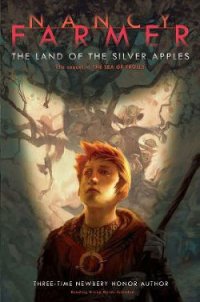Tehanu The Last Book of Earthsea - Le Guin Ursula Kroeber (серии книг читать онлайн бесплатно полностью .TXT) 📗

Жалоба
Напишите нам, и мы в срочном порядке примем меры.
Tehanu The Last Book of Earthsea - Le Guin Ursula Kroeber (серии книг читать онлайн бесплатно полностью .TXT) 📗 краткое содержание
Tehanu The Last Book of Earthsea читать онлайн бесплатно
Ursula Le Guin
TEHANU
The Last Book of Earthsea
Only in silence the word,
only in dark the light,
only in dying life:
bright the hawk’s flight on the empty sky.
-The Creation of Ea
A Bad Thing
After Farmer Flint of the Middle Valley died, his widow stayed on at the farmhouse. Her son had gone to sea and her daughter had married a merchant of Valmouth, so she lived alone at Oak Farm. People said she had been some kind of great person in the foreign land she came from, and indeed the mage Ogion used to stop by Oak Farm to see her; but that didn’t count for much, since Ogion visited all sorts of nobodies.
She had a foreign name, but Flint had called her Goha, which is what they call a little white web-spinning spider on Gont. That name fit well enough, she being white-skinned and small and a good spinner of goat’s-wool and sheep-fleece. So now she was Flint’s widow, Goha, mistress of a flock of sheep and the land to pasture them, four fields, an orchard of pears, two tenants’ cottages, the old stone farmhouse under the oaks, and the family graveyard over the hill where Flint lay, earth in his earth.
“I’ve generally lived near tombstones,” she said to her daughter.
“Oh, mother, come live in town with us!” said Apple, but the widow would not leave her solitude.
“Maybe later, when there are babies and you’ll need a hand,” she said, looking with pleasure at her grey-eyed daughter. “But not now. You don’t need me, And I like it here.”
When Apple had gone back to her young husband, the widow closed the door and stood on the stone-flagged floor of the kitchen of the farmhouse. It was dusk, but she did not light the lamp, thinking of her own husband lighting the lamp: the hands, the spark, the intent, dark face in the catching glow. The house was silent.
“I used to live in a silent house, alone,” she thought. “I will do so again.” She lighted the lamp.
In a late afternoon of the first hot weather, the widow’s old friend Lark came out from the village, hurrying along the dusty lane. “Goha,” she said, seeing her weeding in the bean patch, “Goha, it’s a bad thing. It’s a very bad thing. Can you come?”
“Yes,” the widow said. “What would the bad thing be?” Lark caught her breath. She was a heavy, plain, middle-aged woman, whose name did not fit her body any more. But once she had been a slight and pretty girl, and she had befriended Goha, paying no attention to the villagers who gossiped about that white-faced Kargish witch Flint had brought home; and friends they had been ever since.
“A burned child,” she said.
“Whose?”
“Tramps’.”
Goha went to shut the farmhouse door, and they set off along the lane, Lark talking as they went. She was short of breath and sweating. Tiny seeds of the heavy grasses that lined the lane stuck to her cheeks and forehead, and she brushed at them as she talked. “They’ve been camped in the river meadows all the month. A man, passed himself off as a tinker, but he’s a thief, and a woman with him. And another man, younger, hanging around with them most of the time. Not working, any of ‘em. Filching and begging and living off the woman. Boys from downriver were bring- ing them farmstuff to get at her. You know how it is now, that kind of thing. And gangs on the roads and coming by farms. If I were you, I’d lock my door, these days. So this one, this younger fellow, comes into the village, and I was out in front of our house, and he says, ‘The child’s not well.’ I’d barely seen a child with them, a little ferret of a thing, slipped out of sight so quick I wasn’t sure it was there at all. So I said, ‘Not well? A fever?’ And the fellow says, ‘She hurt herself, lighting the fire,’ and then before I’d got myself ready to go with him he’d made off. Gone. And when I went out there by the river, the other pair was gone too. Cleared out. Nobody. All their traps and trash gone too. There was just their campfire, still smoldering, and just by it-partly in it-on the ground-”
Lark stopped talking for several steps. She looked straight ahead, not at Goha.
“They hadn’t even put a blanket over her,” she said.
She strode on.
“She’d been pushed into the fire while it was burning,” she said. She swallowed, and brushed at the sticking seeds on her hot face. “I’d say maybe she fell, but if she’d been awake she’d have tried to save herself. They beat her and thought they’d killed her, I guess, and wanted to hide what they’d done to her, so they-”
She stopped again, went on again.
“Maybe it wasn’t him. Maybe he pulled her out. He came to get help for her, after all. It must have been the father. I don’t know. It doesn’t matter. Who’s to know? Who’s to care? Who’s to care for the child? Why do we do what we do?”
Goha asked in a low voice, “Will she live?”
“She might,” Lark said. “She might well live.”
After a while, as they neared the village, she said, “I don’t know why I had to come to you. Ivy’s there. There’s nothing to be done.”
“I could go to Valmouth, for Beech.”
“Nothing he could do. It’s beyond. . . beyond help. I got her warm. Ivy’s given her a potion and a sleeping charm. I carried her home. She must be six or seven but she didn’t weigh what a two-year-old would. She never really waked. But she makes a sort of gasping. . . . I know there isn’t anything you can do. But I wanted you.”
“I want to come,” Goha said. But before they entered Lark’s house, she shut her eyes and held her breath a moment in dread.
Lark’s children had been sent outdoors, and the house was silent. The child lay unconscious on Lark’s bed. The village witch, Ivy, had smeared an ointment of witch hazel and heal-all on the lesser burns, but had not touched the right side of the face and head and the right hand, which had been charred to the bone. She had drawn the rune Pirr above the bed, and left it at that.
“Can you do anything?” Lark asked in a whisper.
Goha stood looking down at the burned child. Her hands were still. She shook her head.
“You learned healing, up on the mountain, didn’t you?” Pain and shame and rage spoke through Lark, begging for relief.
“Even Ogion couldn’t heal this,” the widow said.
Lark turned away, biting her lip, and wept. Goha held her, stroking her grey hair. They held each other.
The witch Ivy came in from the kitchen, scowling at the sight of Goha. Though the widow cast no charms and worked no spells, it was said that when she first came to Gont she had lived at Re Albi as a ward of the mage, and that she knew the Archmage of Roke, and no doubt had foreign and uncanny powers. Jealous of her prerogative, the witch went to the bed and busied herself beside it, making a mound of something in a dish and setting it afire so that it smoked and reeked while she muttered a curing charm over and over. The rank herbal smoke made the burned child cough and half rouse, flinching and shuddering. She began to make a gasping noise, quick, short, scraping breaths. Her one eye seemed to look up at Goha.
Goha stepped forward and took the child’s left hand in hers. She spoke in her own language. “I served them and I left them,” she said. “I will not let them have you.
The child stared at her or at nothing, trying to breathe, and trying again to breathe, and trying again to breathe.
Going to the Falcon ‘s Nest
It was more than a year later, in the hot and spacious days after the Long Dance, that a messenger came down the road from the north to Middle Valley asking for the widow Goha. People in the village put him on the path, and he came to Oak Farm late in the afternoon. He was a sharp-faced, quick-eyed man. He looked at Goha and at the sheep in the fold beyond her and said, “Fine lambs. The Mage of Re Albi sends for you.”




